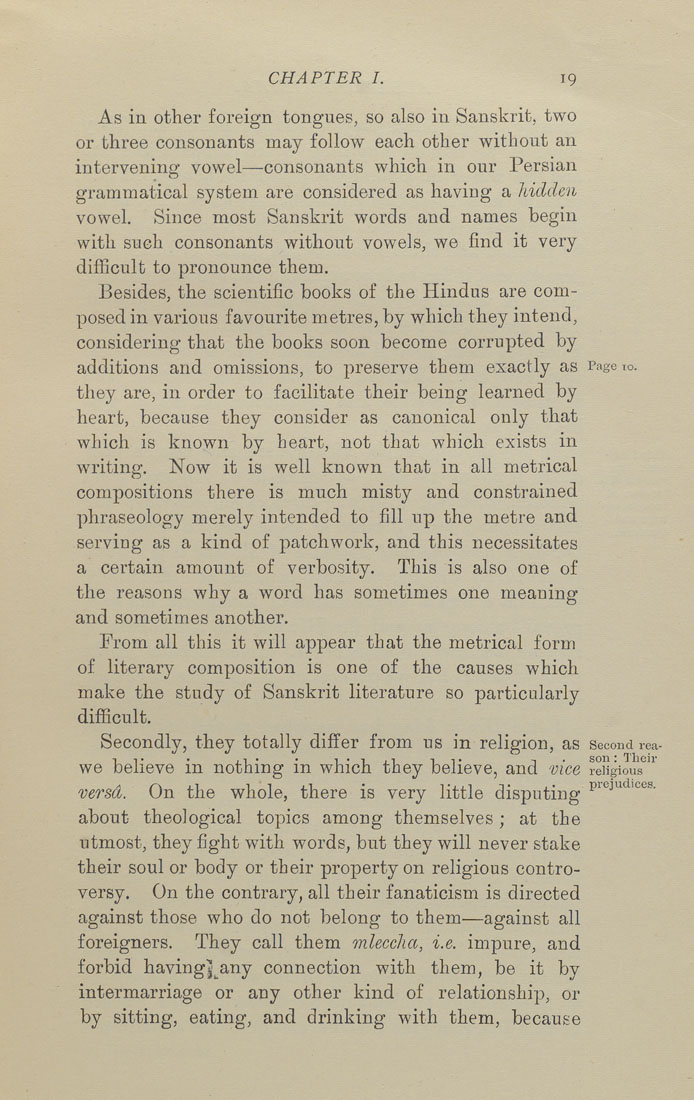Bīrūnī, Muḥammad ibn Aḥmad, Alberuni's India (v. 1)
(London : Kegan Paul, Trench, Trübner & Co., 1910.)
|
||
|
|
|
|
| Page 19 |

CHAPTER I. 19 As in other foreign tongues, so also in Sanskrit, two or three consonants may follow each other without an intervening vowel—consonants which in our Persian grammatical system are considered as having a hidden vowel. Since most Sanskrit words and names begin with such consonants without vowels, we find it very difficult to pronounce them. Besides, the scientific books of the Hindus are com¬ posed in various favourite metres, by which they intend, considering that the books soon become corrupted by additions and omissions, to preserve them exactly as Page 10. they are, in order to facilitate their being learned by heart, because they consider as canonical only that which is known by heart, not that which exists in writing. Now it is well known that in all metrical compositions there is much misty and constrained phraseology merely intended to fill up the metre and serving as a kind of patchwork, and this necessitates a certain amount of verbosity. This is also one of the reasons why a word has sometimes one meaning and sometimes another. From all this it will appear that the metrical form of literary composition is one of the causes which make the study of Sanskrit literature so particularly difficult. Secondly, they totally differ from us in religion, as second lea- we believe in nothing in which they believe, and vice i-eiigiour^ versa. On the whole, there is very little disputing ^"'■'" about theological topics among themselves; at the utmost, they fight with words, but they will never stake their soul or body or their property on religious contro¬ versy. On the contrary, all their fanaticism is directed against those who do not belong to them—against all foreigners. They call them mleccha, i.e. impure, and forbid havingj^any connection with them, be it by intermarriage or any other kind of relationship, or by sitting, eating, and drinking with them, because |
| Page 19 |







